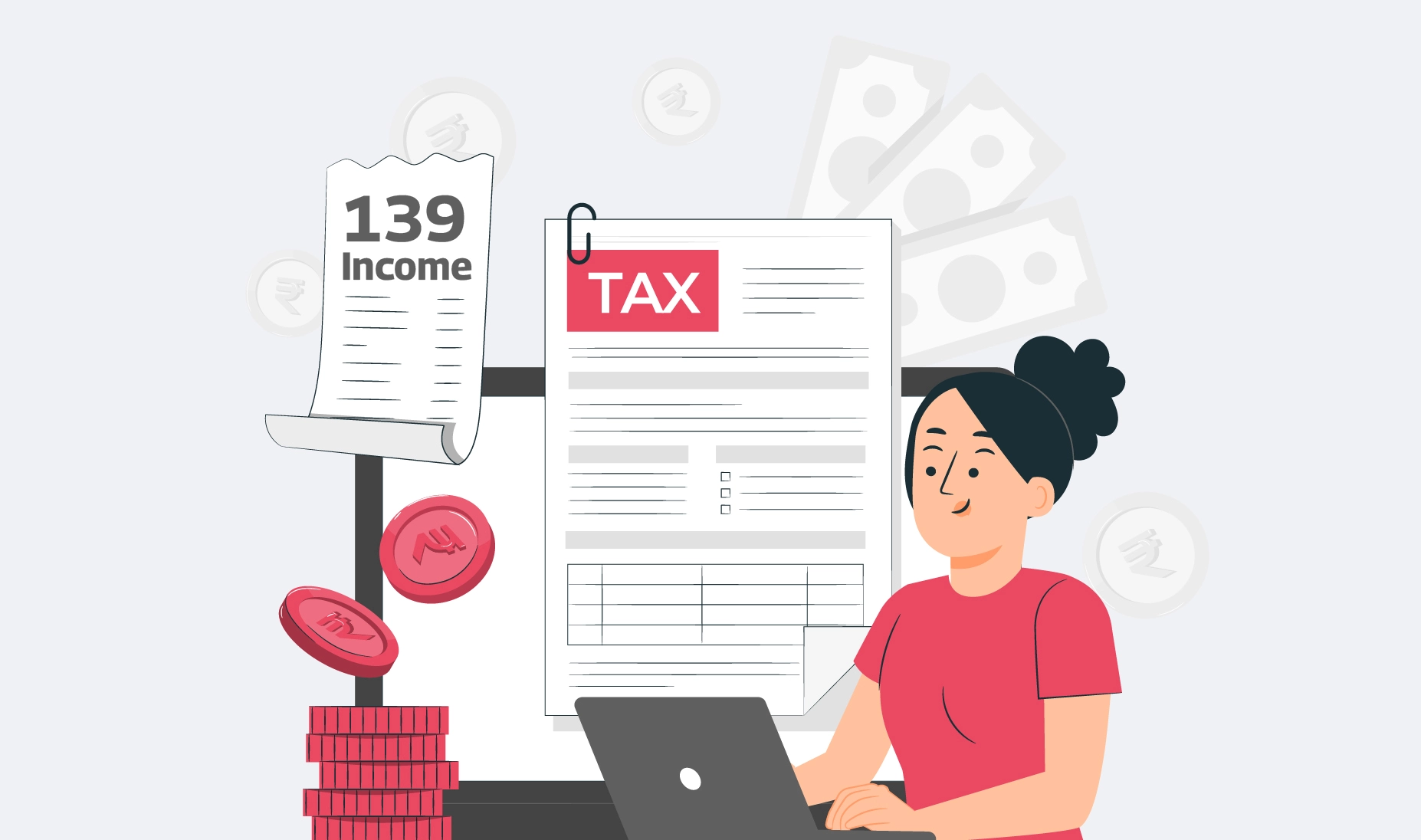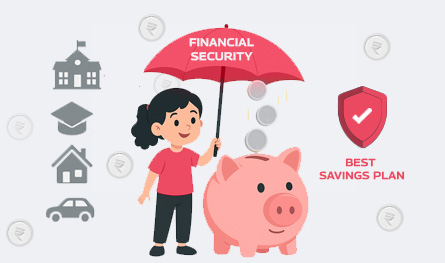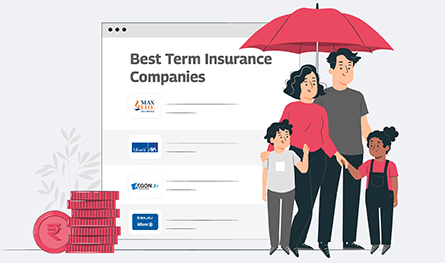Related Articles
 Jan 08, 2025
Jan 08, 2025
Is Varicose Vein surgery covered under the health insurance policy in India
 Health Insurance
Health Insurance
.png)
When it comes to covering the uninformed and unforeseen healthcare issues, do you rely on health insurance plans or would you go for a medical loan? Which is better? Let us find out.
.png)
When a health emergency crops up uninformed, you become clueless about what to do and how to manage the situation, especially if you don’t have enough savings as well as any health insurance. So, what do you do in such situations, you may ask. During such a case, all you can do is to take a loan. But do you think a loan is a better option to avail or do you feel that you should stick to health insurance plans? Let us delve into this topic to get a better idea.
This kind of personal loan aids in covering a variety of medical expenses, such as those related to operations, surgeries, and other medical conditions.
This type of insurance pays for medical expenses, based on the level of coverage that the policyholder selects.
Of course, there are some major differences between an insurance plan bought for your health and a medical emergency loan. The key difference is that a health insurance policy is bought in advance before the insured is caught into any health issue. However, when it comes to a medical loan, it is bought at a time when you actually need it because of a medical emergency.
So, one might ask, what is the requirement of a health insurance plan if you can avail a medical loan instead?
The thing is, a Health insurance is bought as a preventive measure to deal with any untoward situation where you require monetary support to deal with an emergency health requirement. With health insurance, you can make sure to receive financial assistance at a time when you face any medical emergency loan issue.
Here, you have the liberty to choose the kind of health protection you are looking to have at a budget that you can afford. However, in the case of a health insurance plan you cannot wait till the end moment to buy insurance when you are struck by an medical emergency loan. This is because health insurance comes with the clause of waiting period etc. which needs to be fulfilled before you could make a claim. And the insured is expected to buy the insurance and pay the premium continuously to be able to enjoy the benefits of the plan.
But this is not true with loans for medical treatment, which is a debt that you buy from a bank and need to repay within a duration of time. Here you opt for a particular loan amount when you are struck with an emergency and pay off the debt as per the terms of the loan. Here, you need to pay an interest on the amount you take as a loan.
Health insurance is supposed to be a better option as compared to buying a loan because of the following reasons as mentioned below:
1. Gain from immediate medical facilities –
In case of health insurance, the insured can avail medical facilities instantly at the time of an emergency. Here, you must raise a claim to the insurer to get coverage of your medical expenses. Also, it requires less paperwork and less wastage of time. But in case of a medical loan, it takes time to process the loan by the bank. And the delay might delay the process of treatment.
2. Affordability –
Health insurance is also said to be better in terms of affordability as compared to medical loans. In health insurance, you pay a minimum amount as premium for the policy annually and in return get numerous benefits such as NCB, etc to reduce premium. But that is not the case with medical loans as you need to pay monthly EMI for years as per the loan amount, which is far more than the premium amount. And if you need treatment for a long duration, the insurance serves the purpose all the more.
3. Facility of Cashless Treatment –
This is another huge benefit of health insurance because here you can avail cashless treatment in a hospital that is within the network of the insurer and has a tie-up with the insurer. Under this facility, the insured does not need to pay any money for the treatment, while the insurer does the payment to the hospital directly.
However, no such facility is available with a medical loan.
1. Credit Score –
In case of medical loans in India, you must show a good credit score to avail a loan, but no such requirement is there for health insurance. If you maintain a lower credit score due to late payments in EMI, you might not get a loan the next time. However, in case of health insurance the premium has no such impact on the insured’s credit score.
2. Tax Benefits –
Tax benefit is another major reason to choose a health insurance plan rather than a medical loan. You can get tax benefits under Income Tax Act, Section 80D on the premium that is paid for your health insurance.
3. Extra advantages –
Further, there are many more extra benefits that you receive from health insurance coverage like yearly health check-up, No claim bonus, discounts for long term policy period or for buying plans online and so on. However, all these benefits are not available under medical loan.
To keep receiving medical coverage from the insurer, you must pay a regular premium for health insurance. On the other hand, a medical loan is a debt that you must pay back with interest once you have received the loan amount.
Yes, hospitalization and related costs are primarily covered by health insurance in India. Even if they are performed inside a hospital, outpatient costs like regular doctor visits for a cold, a cough, or a common fever, medications, etc., are not covered by the standard health insurance.
A personal emergency loan from Bank has a flexible repayment period of 1 to 5 years and a sizeable loan amount. Additionally, you can receive an amount ranging from Rs 50,000 to Rs 40 lakh, which can assist you in meeting your financial obligations in the event of a personal emergency.
How long do we have to file a claim for health insurance? The initial waiting period can vary depending on the policy, but it usually ranges from 30 days (the minimum) to 90 days. If the insured suffers an accident and needs immediate hospitalization, an exception may be made.

Paybima Team
Paybima is an Indian insurance aggregator on a mission to make insurance simple for people. Paybima is the Digital arm of the already established and trusted Mahindra Insurance Brokers Ltd., a reputed name in the insurance broking industry with 17 years of experience. Paybima promises you the easy-to-access online platform to buy insurance policies, and also extend their unrelented assistance with all your policy related queries and services.

Taxpayers should know more about Section 139(1) of the Income tax act since it is the section under which they have to file their returns if they have missed filing within the due date.


Have you ever caught yourself lost in illusions about your daughter's future events, such as her university convocation and first day at work? Her university convocation. When she embarks upon her initial job after graduation will be the day.

In a country where medical inflation is rising rapidly, securing a comprehensive health coverage plan for the entire family is no longer optional, it is essential. Selecting the right health insurance requires careful evaluation of multiple factors, not just premium costs. A well-chosen plan ensures financial security, access to quality healthcare, and peace of mind during medical emergencies.


Term insurance is an important investment. However, with the availability of so many insurers offering term plans, it becomes difficult to select the best term plan to suit your needs. Buying a term plan needs some consideration and research on the part of the policyholder. In this post, let us discuss the best term insurance providers in India.

.png)
When you sign up for a life insurance policy - whether it’s a traditional term insurance policy or a ULIP – you are not just buying peace of mind. You are also trusting the insurer with your money. So naturally, you would want to know: How is that money being managed? And more importantly, how is it being protected from risky decisions?
